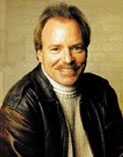Steve Houghton
 Many Musicians Institute alumni know Steve Houghton as one of the most passionate and challenging instructors in P.I.T.’s history. But Steve is also an accomplished player, earning performing and recording credits with Woody Herman, Billy Childs, Freddie Hubbard, Toshiko Akiyoshi, Diana Krall, Scott Henderson, Gary Burton, and Arturo Sandoval. MD snagged Steve between teaching gigs at UCLA’s Mancini Institute, the University of Indiana (where he is an associate professor), and a two-week percussion camp in Taiwan to discuss a recent project that is especially near to his heart.
Many Musicians Institute alumni know Steve Houghton as one of the most passionate and challenging instructors in P.I.T.’s history. But Steve is also an accomplished player, earning performing and recording credits with Woody Herman, Billy Childs, Freddie Hubbard, Toshiko Akiyoshi, Diana Krall, Scott Henderson, Gary Burton, and Arturo Sandoval. MD snagged Steve between teaching gigs at UCLA’s Mancini Institute, the University of Indiana (where he is an associate professor), and a two-week percussion camp in Taiwan to discuss a recent project that is especially near to his heart.
One reason Steve is so respected as a teacher is that he remains an insatiable student of drumming, always seeking new challenges and greater understanding of the craft. An admirer of West Coast jazz pioneer Shelly Manne, Houghton searched for the arrangements on one of his favorite albums, Manne–That’s Gershwin! Penned by none other than John Williams, composer of themes to such movies as Star Wars and E.T., the charts eluded Steve for over a year. But one day while Steve was helping Flip Manne, Shelly’s widow, distribute a biography on her husband to jazz schools, but not only presented the charts, she endorsed his proposal to re-record the album.
To navigate the dense, highly textured arrangements, Houghton employed his own top-flight quintet, rounded out by the Two O’Clock Lab Band from his alma mater, the University of North Texas. And with characteristic drive, he produced and recorded The Manne We Love: Gershwin Revisited in less than a year. Advertisement
“It was Shelly’s versatility that really amazed me,” Steve explains. “He did studio work, played percussion, and composed; he could play small group and big band. I really liked his jazz playing, especially his work with Bill Evans. It was so musical, and it was always a bit understated. Yet it had a cool humor.”
Making a tribute album always poses the questions What to copy and What to improvise. For Steve, Gershwin Revisited was no exception. “Maybe this isn’t a great analogy,” he observes, “but if you were to play “Love For Sale” on a Buddy Rich tribute and you didn’t include those classic two-bar breaks, you’d sound like an idiot. There were certain things Shelly did in this material that were so perfect, I wanted to honor his interpretation. Some of the playfulness isn’t verbatim, but I tried to capture the character of his playing.”


